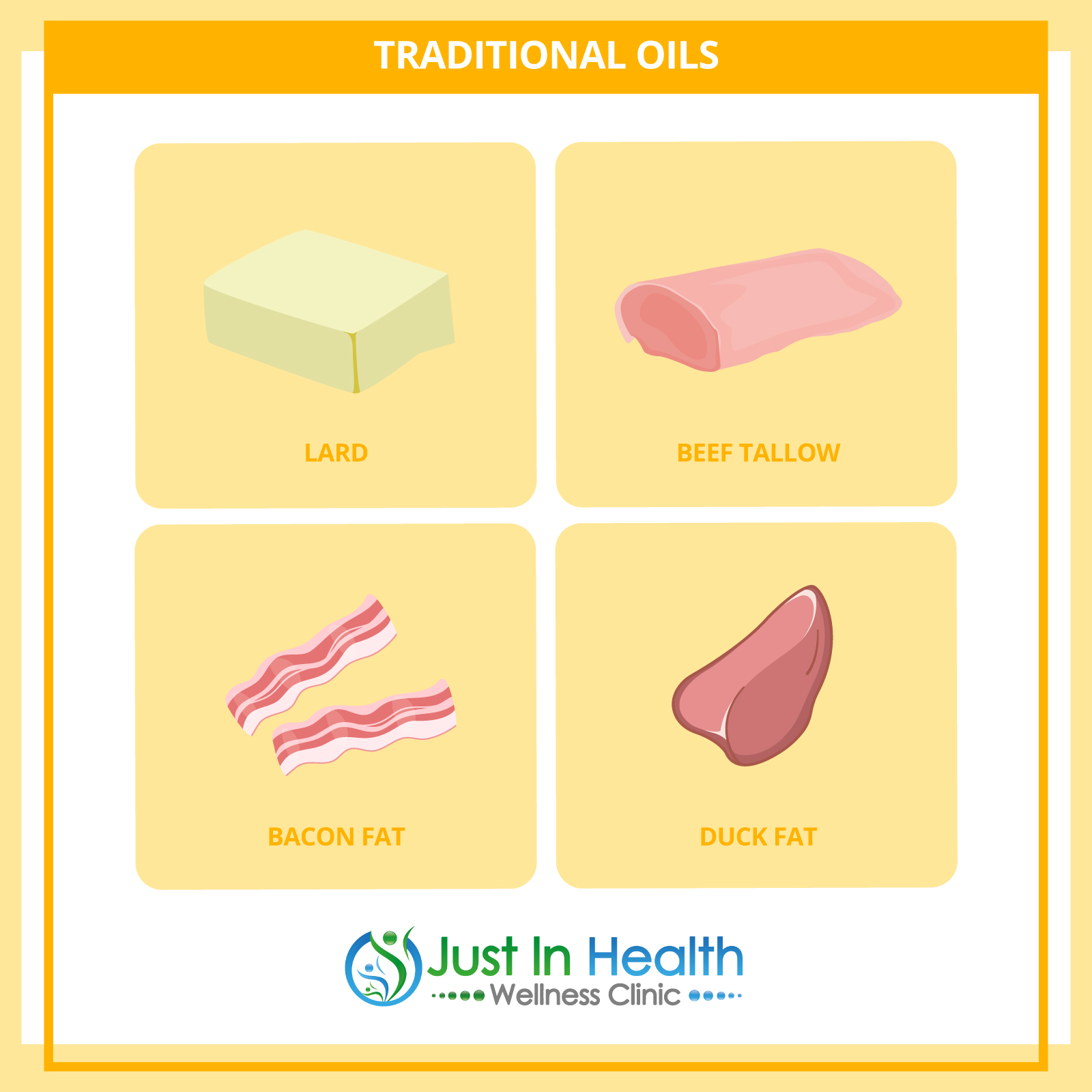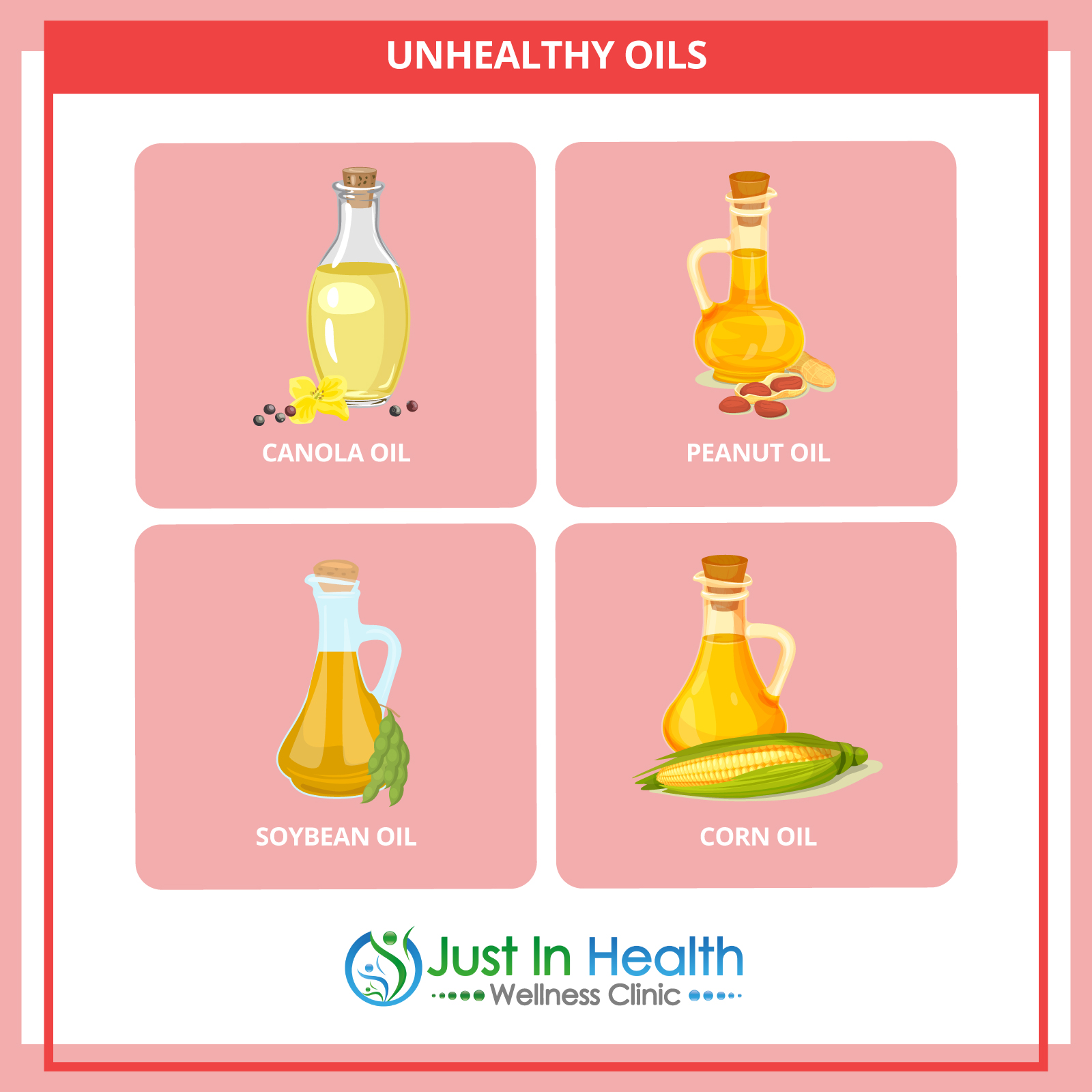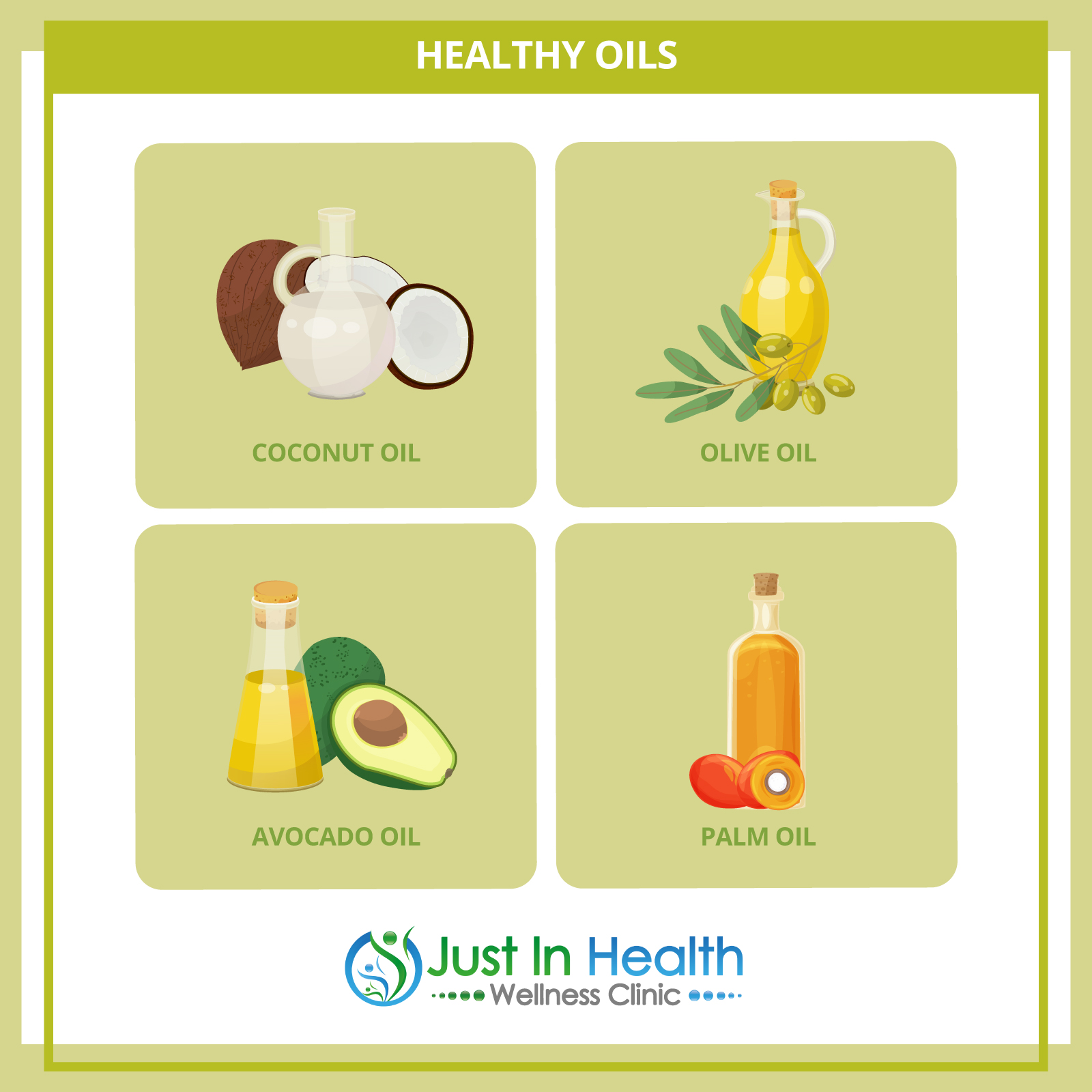
If you're struggling with bloating, indigestion, fatigue, or unexplained gut issues, your cooking oil might be part of the problem. The modern Western diet is loaded with highly processed oils that weren't available to our grandparents a century ago. These oils are often extracted at high heat using industrial solvents, making them inflammatory and unstable—directly impacting your digestive tract, gut lining, and immune system.
Functional medicine considers inflammation the root cause of many chronic symptoms and diseases. While sugar, gluten, and food sensitivities receive much attention, oils are a silent trigger—especially when consumed daily through restaurant meals, packaged foods, or even well-intended “healthy” snacks.
Let’s dive into the good vs. bad oils, how they affect your gut, and how lab testing can help assess the damage and guide your healing process.

Unlike whole foods, refined seed oils are stripped of nutrients and often become oxidized—creating harmful compounds like aldehydes and lipid peroxides. These unstable fats promote oxidative stress, damaging cell membranes, depleting antioxidants like vitamins E and C, and inflaming the gut lining.
Common symptoms linked to oil-induced gut inflammation include:
Bloating and abdominal pain
Leaky gut and food sensitivities
Fatigue and brain fog
Skin breakouts or eczema
Nutrient malabsorption
Hormonal imbalances
In functional medicine, these symptoms improve significantly when inflammatory oils are eliminated and replaced with more stable, gut-supportive fats.

Here are the top offenders when it comes to gut-damaging oils:
Canola oil is often marketed as “heart healthy,” but it’s typically extracted using heat and solvents like hexane. It is high in unstable omega-6 fats and easily oxidizes, contributing to gut and systemic inflammation.
Soybean oil is one of the most consumed oils in the U.S. It is extremely rich in omega-6 fatty acids, which promote an imbalanced inflammatory state. Studies have also linked it to microbiome disruption.
Used in many processed and fast foods, corn oil has a poor omega-3 to omega-6 ratio and is prone to rancidity.
While commonly used for frying, peanut oil is highly processed and often refined, contributing to oxidative stress and inflammatory responses.
This industrial oil is not only high in omega-6s but may contain pesticide residues and is genetically modified.
These oils are ubiquitous in restaurant kitchens, processed snacks, salad dressings, and even foods marketed as “natural” or “healthy.” Always read ingredient labels carefully—even frozen sweet potato fries or gluten-free snacks may sneak in these bad fats.

Not all fats are bad. Certain oils can be incredibly healing—providing antimicrobial properties, stabilizing blood sugar, and reducing inflammation.
Coconut oil is a saturated fat that’s incredibly stable under heat. It contains lauric acid, which has natural antimicrobial properties. Coconut oil is excellent for cooking, baking, and even skincare.
Rich in monounsaturated fats, avocado oil is stable at higher temperatures and has a neutral flavor, making it ideal for roasting, sautéing, or grilling.
A fantastic source of heart-healthy monounsaturated fats and polyphenols, olive oil is best used raw or at low temperatures (e.g., in salad dressings or drizzling on warm vegetables).
Traditional animal fats like beef tallow and lard are highly heat-stable and less likely to go rancid. These were common cooking fats for generations before industrial oils became widespread.
These traditional fats are rich in fat-soluble vitamins and butyrate (in ghee), supporting gut lining integrity and immune balance.
Some seed and nut oils may offer health benefits if they are:
Cold-pressed or expeller-pressed
Organic and unrefined
Stored in dark glass containers
Consumed in moderation and not used for high-heat cooking
Examples include flaxseed oil or black currant seed oil, which can be used as supplements (in capsules) but not for cooking. These oils are rich in specific fatty acids like GLA or ALA but are highly perishable when exposed to light, heat, or air.
Lab testing can clarify if you suspect your oils or diet contribute to gut issues. At Just In Health, we use advanced functional labs to measure:
Stool testing (e.g., GI-MAP): This test identifies markers of gut inflammation like calprotectin, anti-gliadin sIgA, and zonulin levels, as well as infections or dysbiosis worsened by poor fat digestion.
Organic Acids Test (OAT): Assesses oxidative stress, mitochondrial function, and fat metabolism byproducts.
Fatty Acid Profiles: Reveals imbalances in omega-3, 6, and 9 levels, which can guide supplement and dietary strategies.
Food Sensitivity Panels: Identify immune responses to oils or foods cooked in inflammatory oils.
Imagine you order gluten-free fish and sweet potato fries at a restaurant. Sounds healthy, right? But what if that fish is fried in canola oil? Even though you avoid gluten and processed carbs, the inflammatory oil could offset the benefits by triggering oxidative stress and gut irritation.
This is why Dr. Justin Marchegiani recommends preparing meals at home using trusted fats like avocado oil, coconut oil, or grass-fed ghee—and reading labels even on “natural” packaged foods.
The fats you cook with daily may either heal or harm your gut. Avoiding processed industrial oils like canola, soy, corn, and cottonseed can dramatically reduce inflammation, support digestion, and improve overall energy, mood, and skin clarity.
Remember: quality matters. To protect your gut lining, opt for cold-pressed, organic oils and use saturated fats for cooking.
If you're struggling with inflammation, fatigue, or gut-related symptoms, let’s get to the root cause. Schedule a free consult with Dr. Justin Marchegiani today to assess your gut health and get personalized guidance on nutrition, labs, and healing protocols:
References:
Deol P, Evans JR, Dhahbi J, et al. Soybean oil is more obesogenic and diabetogenic than coconut oil and fructose in mice. PLOS ONE. 2015. https://pubmed.ncbi.nlm.nih.gov/26200659
Lerner A, Matthias T. Changes in intestinal tight junction permeability associated with industrial food additives. Autoimmun Rev. 2015. https://pubmed.ncbi.nlm.nih.gov/25891573
Mozaffarian D, Micha R, Wallace S. Effects on coronary heart disease of increasing polyunsaturated fat in place of saturated fat: a meta-analysis. PLoS Med. 2010. https://pubmed.ncbi.nlm.nih.gov/20351774
====================
IN CASE YOU MISSED IT:
Probiotic Intolerance Explained – Why Good Bacteria Can Go Bad with Rob Edwards | #450
====================
Recommended Lab Tests